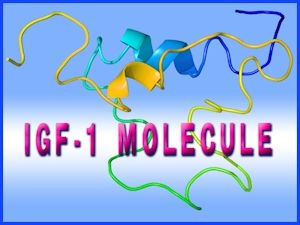Introduction
Testosterone replacement therapy (TRT) has become increasingly prevalent among American men seeking to address symptoms of low testosterone, such as reduced libido, fatigue, and muscle loss. While TRT's benefits are well-documented, emerging research suggests potential associations with various health conditions, including gastrointestinal disorders. This article explores the relationship between TRT and gastroesophageal reflux disease (GERD) in American men, shedding light on the possible implications for patient management and future research.
Understanding Gastroesophageal Reflux Disease
GERD is a chronic condition characterized by the reflux of stomach contents into the esophagus, leading to symptoms such as heartburn, regurgitation, and chest pain. It affects millions of Americans, with a higher prevalence among men. The exact etiology of GERD is multifactorial, involving factors such as lower esophageal sphincter dysfunction, hiatal hernia, and obesity. Recent studies have begun to investigate the potential role of hormonal influences, including testosterone, in the development and exacerbation of GERD symptoms.
The Role of Testosterone in Gastrointestinal Health
Testosterone, the primary male sex hormone, plays a crucial role in various physiological processes, including muscle mass maintenance, bone density, and sexual function. However, its impact on the gastrointestinal system is less well-understood. Some research suggests that testosterone may influence esophageal motility and the function of the lower esophageal sphincter, potentially contributing to the development or worsening of GERD symptoms.
Exploring the Association Between TRT and GERD
Several studies have investigated the potential link between TRT and GERD in American men. A recent retrospective cohort study analyzed data from over 10,000 male veterans receiving TRT and found a significantly higher incidence of GERD diagnoses compared to a control group not receiving TRT. Another study using a national insurance claims database reported a 20% increased risk of GERD among men initiating TRT compared to those not receiving the therapy.
Possible Mechanisms Linking TRT and GERD
The exact mechanisms underlying the association between TRT and GERD remain unclear. Some theories suggest that testosterone may relax the lower esophageal sphincter, allowing stomach contents to reflux into the esophagus more easily. Additionally, TRT has been associated with weight gain and increased body mass index, both of which are known risk factors for GERD. Furthermore, testosterone's potential impact on esophageal motility and sensitivity could contribute to the development or worsening of GERD symptoms.
Clinical Implications and Management Strategies
For American men considering or currently undergoing TRT, the potential association with GERD should be taken into account. Healthcare providers should thoroughly assess patients' gastrointestinal symptoms and medical history before initiating TRT. For those with pre-existing GERD, close monitoring and management of symptoms are crucial. Lifestyle modifications, such as weight management, dietary changes, and elevating the head of the bed, may help alleviate GERD symptoms in men receiving TRT.
Future Research Directions
The current evidence linking TRT and GERD in American men is primarily observational and warrants further investigation. Prospective, randomized controlled trials are needed to establish a causal relationship and better understand the underlying mechanisms. Additionally, research should focus on identifying specific patient populations at higher risk of developing GERD while undergoing TRT, as well as exploring potential preventive measures and alternative treatment options for men with low testosterone levels.
Conclusion
The association between testosterone replacement therapy and gastroesophageal reflux disease in American men highlights the importance of considering potential gastrointestinal side effects when prescribing TRT. While the exact mechanisms remain unclear, healthcare providers should be aware of this potential link and take appropriate measures to monitor and manage GERD symptoms in men receiving TRT. As research continues to unravel the complex relationship between hormones and gastrointestinal health, a multidisciplinary approach to patient care will be essential in optimizing outcomes for American men seeking testosterone replacement therapy.
Contact Us For A Fast And Professional Response

- 0001) TRT's Impact on Mental Health in American Men: Benefits, Risks, and Holistic Approaches [Last Updated On: March 12th, 2025] [Originally Added On: March 12th, 2025]
- 0002) Testosterone Replacement Therapy: Benefits and Risks for Young American Men with Hypogonadism [Last Updated On: March 18th, 2025] [Originally Added On: March 18th, 2025]
- 0003) Optimizing Testosterone Replacement Therapy with Diet and Exercise: A Holistic Approach for American Men [Last Updated On: March 18th, 2025] [Originally Added On: March 18th, 2025]
- 0004) TRT Boosts Bone Health in American Males: Benefits and Considerations [Last Updated On: March 18th, 2025] [Originally Added On: March 18th, 2025]
- 0005) American Men's Experiences with Testosterone Replacement Therapy: Impacts and Insights [Last Updated On: March 18th, 2025] [Originally Added On: March 18th, 2025]
- 0006) Navigating Insurance Coverage for Testosterone Replacement Therapy: A Comprehensive Guide [Last Updated On: March 19th, 2025] [Originally Added On: March 19th, 2025]
- 0007) Testosterone Replacement Therapy: Dosage, Methods, and Risks for American Males [Last Updated On: March 19th, 2025] [Originally Added On: March 19th, 2025]
- 0008) Testosterone Replacement Therapy: Enhancing Male Health and Vitality in American Men [Last Updated On: March 19th, 2025] [Originally Added On: March 19th, 2025]
- 0009) TRT: Benefits, Risks, and Prostate Health Monitoring in American Men [Last Updated On: March 19th, 2025] [Originally Added On: March 19th, 2025]
- 0010) Future of TRT: Innovations, Personalization, and Accessibility in American Medicine [Last Updated On: March 20th, 2025] [Originally Added On: March 20th, 2025]
- 0011) Economic Impact of Testosterone Replacement Therapy on U.S. Healthcare System [Last Updated On: March 20th, 2025] [Originally Added On: March 20th, 2025]
- 0012) TRT and Holistic Health: Enhancing American Men's Wellness with Alternative Therapies [Last Updated On: March 21st, 2025] [Originally Added On: March 21st, 2025]
- 0013) TRT in American Men: Masculinity, Stigma, and Healthcare Dynamics [Last Updated On: March 21st, 2025] [Originally Added On: March 21st, 2025]
- 0014) TRT Enhances Sleep Quality in American Males with Low Testosterone [Last Updated On: March 21st, 2025] [Originally Added On: March 21st, 2025]
- 0015) Testosterone Replacement Therapy: Enhancing Mood in American Males [Last Updated On: March 22nd, 2025] [Originally Added On: March 22nd, 2025]
- 0016) TRT: Enhancing Weight Management in American Males Through Holistic Approach [Last Updated On: March 22nd, 2025] [Originally Added On: March 22nd, 2025]
- 0017) Hypogonadism and TRT: Benefits, Risks, and Lifestyle Impact on American Males [Last Updated On: March 23rd, 2025] [Originally Added On: March 23rd, 2025]
- 0018) TRT's Impact on Immune Function in American Men: Benefits and Risks [Last Updated On: March 23rd, 2025] [Originally Added On: March 23rd, 2025]
- 0019) TRT's Role in Managing Diabetes: Insights for American Men [Last Updated On: March 23rd, 2025] [Originally Added On: March 23rd, 2025]
- 0020) TRT Benefits for American Males: Enhancing Skin Health and Elasticity [Last Updated On: March 23rd, 2025] [Originally Added On: March 23rd, 2025]
- 0021) Managing Side Effects of Testosterone Replacement Therapy in American Males [Last Updated On: March 24th, 2025] [Originally Added On: March 24th, 2025]
- 0022) Testosterone Replacement Therapy: Benefits, Risks, and Management for Aging Males [Last Updated On: March 24th, 2025] [Originally Added On: March 24th, 2025]
- 0023) Testosterone Replacement Therapy: Enhancing Muscle Mass in American Men [Last Updated On: March 24th, 2025] [Originally Added On: March 24th, 2025]
- 0024) TRT's Potential to Enhance Cognitive Function in American Men: An Overview [Last Updated On: March 24th, 2025] [Originally Added On: March 24th, 2025]
- 0025) TRT: Benefits for American Males and Its Impact on Vision Health [Last Updated On: March 24th, 2025] [Originally Added On: March 24th, 2025]
- 0026) Testosterone Replacement Therapy: Monitoring, Adjusting, and Lifestyle for American Males [Last Updated On: March 24th, 2025] [Originally Added On: March 24th, 2025]
- 0027) Testosterone Replacement Therapy: Combating Fatigue in American Men [Last Updated On: March 24th, 2025] [Originally Added On: March 24th, 2025]
- 0028) TRT: Enhancing Emotional Well-being in American Men with Low Testosterone [Last Updated On: March 24th, 2025] [Originally Added On: March 24th, 2025]
- 0029) TRT's Impact on Cardiovascular Health in American Men: Benefits and Risks [Last Updated On: March 24th, 2025] [Originally Added On: March 24th, 2025]
- 0030) TRT's Impact on Male Fertility: Risks, Strategies, and Lifestyle Considerations [Last Updated On: March 24th, 2025] [Originally Added On: March 24th, 2025]
- 0031) TRT and Hair Loss: Understanding Risks and Management Strategies for American Men [Last Updated On: March 25th, 2025] [Originally Added On: March 25th, 2025]
- 0032) TRT's Impact on Digestive Health in American Men: A Comprehensive Overview [Last Updated On: March 25th, 2025] [Originally Added On: March 25th, 2025]
- 0033) TRT Benefits for Joint Health in American Males: A Comprehensive Overview [Last Updated On: March 25th, 2025] [Originally Added On: March 25th, 2025]
- 0034) TRT Enhances Injury Recovery in American Males: Benefits and Considerations [Last Updated On: March 25th, 2025] [Originally Added On: March 25th, 2025]
- 0035) Testosterone Replacement Therapy: Benefits, Risks, and Management for American Men [Last Updated On: March 25th, 2025] [Originally Added On: March 25th, 2025]
- 0036) TRT Enhances Cognitive Function and Mental Clarity in American Men [Last Updated On: March 26th, 2025] [Originally Added On: March 26th, 2025]
- 0037) TRT: A Promising Approach to Managing Chronic Pain in American Males [Last Updated On: March 26th, 2025] [Originally Added On: March 26th, 2025]
- 0038) Testosterone Replacement Therapy: Benefits, Risks, and Latest Research for American Men [Last Updated On: March 26th, 2025] [Originally Added On: March 26th, 2025]
- 0039) Testosterone Replacement Therapy: Benefits, Risks, and Management for American Men [Last Updated On: March 26th, 2025] [Originally Added On: March 26th, 2025]
- 0040) Testosterone Replacement Therapy: Enhancing Stamina in American Males [Last Updated On: March 26th, 2025] [Originally Added On: March 26th, 2025]
- 0041) TRT's Impact on Liver Health: Monitoring and Managing Risks [Last Updated On: March 26th, 2025] [Originally Added On: March 26th, 2025]
- 0042) Testosterone Replacement Therapy: Costs, Benefits, and Accessibility for American Men [Last Updated On: March 27th, 2025] [Originally Added On: March 27th, 2025]
- 0043) Testosterone Replacement Therapy: A Promising Treatment for Depression in American Males [Last Updated On: March 27th, 2025] [Originally Added On: March 27th, 2025]
- 0044) TRT's Potential Benefits for Respiratory Health in American Men: A Comprehensive Overview [Last Updated On: March 27th, 2025] [Originally Added On: March 27th, 2025]
- 0045) TRT: A Solution for Low Libido in American Males - Benefits, Safety, and Future [Last Updated On: March 27th, 2025] [Originally Added On: March 27th, 2025]
- 0046) TRT and Blood Pressure: Monitoring and Management Strategies for American Men [Last Updated On: March 28th, 2025] [Originally Added On: March 28th, 2025]
- 0047) Maximizing TRT Benefits: Diet, Exercise, Sleep, and Stress Management for American Males [Last Updated On: March 29th, 2025] [Originally Added On: March 29th, 2025]
- 0048) TRT: Managing Stress and Enhancing Well-being in American Males [Last Updated On: March 29th, 2025] [Originally Added On: March 29th, 2025]
- 0049) TRT's Impact on Kidney Function: Benefits and Risks for American Males [Last Updated On: March 29th, 2025] [Originally Added On: March 29th, 2025]
- 0050) Testosterone Replacement Therapy: Enhancing Confidence and Well-being in American Males [Last Updated On: March 30th, 2025] [Originally Added On: March 30th, 2025]
- 0051) Choosing the Right TRT Clinic: Key Factors for American Males [Last Updated On: March 30th, 2025] [Originally Added On: March 30th, 2025]
- 0052) Testosterone Replacement Therapy: Side Effects and Risks for American Men [Last Updated On: March 31st, 2025] [Originally Added On: March 31st, 2025]
- 0053) TRT's Complex Effects on Blood Sugar in American Men: A Comprehensive Analysis [Last Updated On: April 1st, 2025] [Originally Added On: April 1st, 2025]
- 0054) TRT's Impact on Cholesterol: Insights for American Males on Therapy [Last Updated On: April 1st, 2025] [Originally Added On: April 1st, 2025]
- 0055) TRT's Impact on Thyroid Function: Essential Insights for American Men [Last Updated On: April 4th, 2025] [Originally Added On: April 4th, 2025]
- 0056) Testosterone Replacement Therapy: Enhancing Health and Vitality in American Males [Last Updated On: April 5th, 2025] [Originally Added On: April 5th, 2025]
- 0057) Exploring TRT: Benefits, Risks, and Ethics for American Male Athletes [Last Updated On: April 8th, 2025] [Originally Added On: April 8th, 2025]
- 0058) Maximizing Health: Integrating TRT with Lifestyle and Pharmacological Therapies for American Males [Last Updated On: April 8th, 2025] [Originally Added On: April 8th, 2025]
- 0059) Understanding Allergic Reactions in Testosterone Replacement Therapy: Risks and Management [Last Updated On: April 9th, 2025] [Originally Added On: April 9th, 2025]
- 0060) TRT's Impact on Dental Health: Insights for American Men [Last Updated On: April 9th, 2025] [Originally Added On: April 9th, 2025]
- 0061) TRT and Hearing Health: Considerations for American Males [Last Updated On: April 9th, 2025] [Originally Added On: April 9th, 2025]
- 0062) TRT: Boosting Social Confidence and Relationships in American Males [Last Updated On: April 9th, 2025] [Originally Added On: April 9th, 2025]
- 0063) Understanding Testosterone Replacement Therapy: Interpreting Lab Results for American Men [Last Updated On: April 10th, 2025] [Originally Added On: April 10th, 2025]
- 0064) Traveling with Testosterone Replacement Therapy: A Comprehensive Guide for American Men [Last Updated On: April 10th, 2025] [Originally Added On: April 10th, 2025]
- 0065) TRT Benefits for American Men: Enhancing Nail Health and Overall Vitality [Last Updated On: April 10th, 2025] [Originally Added On: April 10th, 2025]
- 0066) TRT Benefits for Eye Health in American Men: Dry Eye, AMD, and More [Last Updated On: April 11th, 2025] [Originally Added On: April 11th, 2025]
- 0067) Legal Framework and Considerations for Testosterone Replacement Therapy in the U.S. [Last Updated On: April 12th, 2025] [Originally Added On: April 12th, 2025]
- 0068) TRT's Impact on American Men's Reproductive Health: Fertility and Sperm Production Effects [Last Updated On: April 12th, 2025] [Originally Added On: April 12th, 2025]
- 0069) Testosterone Replacement Therapy: Social Implications for American Males [Last Updated On: April 16th, 2025] [Originally Added On: April 16th, 2025]
- 0070) TRT's Impact on Chest Health: Benefits, Risks, and Management in American Men [Last Updated On: April 16th, 2025] [Originally Added On: April 16th, 2025]
- 0071) Testosterone Replacement Therapy: Psychological Impacts and Support for American Men [Last Updated On: April 16th, 2025] [Originally Added On: April 16th, 2025]
- 0072) TRT's Impact on Neck Health: Benefits and Risks for American Men [Last Updated On: April 17th, 2025] [Originally Added On: April 17th, 2025]
- 0073) TRT's Impact on Cognitive Function and Artistic Expression in American Males [Last Updated On: April 17th, 2025] [Originally Added On: April 17th, 2025]
- 0074) TRT Enhances Foot Health in American Males: Muscle, Bone, and Nerve Benefits [Last Updated On: April 17th, 2025] [Originally Added On: April 17th, 2025]
- 0075) TRT's Impact on Hand Health: Benefits, Risks, and Management for American Men [Last Updated On: April 18th, 2025] [Originally Added On: April 18th, 2025]
- 0076) Ethical Challenges in Testosterone Replacement Therapy: Consent, Access, and Misuse [Last Updated On: April 18th, 2025] [Originally Added On: April 18th, 2025]
- 0077) TRT: Boosting Work Performance in American Males with Low Testosterone [Last Updated On: April 18th, 2025] [Originally Added On: April 18th, 2025]
- 0078) TRT: Enhancing Back Health in American Males Through Testosterone Therapy [Last Updated On: April 20th, 2025] [Originally Added On: April 20th, 2025]
- 0079) Testosterone Replacement Therapy: Health Benefits vs. Environmental Impact in the U.S. [Last Updated On: April 21st, 2025] [Originally Added On: April 21st, 2025]
- 0080) TRT's Impact on Abdominal Health: Benefits, Risks, and Considerations for American Men [Last Updated On: April 22nd, 2025] [Originally Added On: April 22nd, 2025]
















